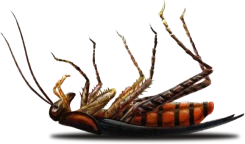Sting Strategies: Common Myths Debunked
Memorial Day weekend is almost here, along with pool parties, picnics and trips to the beach. Unfortunately, stinging insects may show up uninvited to the party and today’s post aims to debunk some common myths about these unwelcome guests.
Myth: If you’ve been stung, it’s probably by a bee.
Fact: Most stings come from yellow jackets.
Myth: Stinging insects are naturally hostile insects.
Fact: Most stinging insects are conditioned to defend, not to attack. Protecting the nest is a biological imperative for many animals and stinging insects have a built-in defense mechanism that really makes that point (pun intended). Most stinging insects will attack you in defense of their nest, not just because you’re there. It’s a classic case of wrong place, wrong time.
Myth: Honeybees can only sting once.
Fact: Honeybee stingers are barbed and may catch on the skin of their victim. When a honeybee stings a human, which has thick skin, the barbed stinger gets caught and the bee cannot sting again. It also cannot live without its stinger, and dies soon after. In the case of other animals with thinner skin, a honeybee may be able to sting multiple times without the stinger catching.
Myth: Only honeybees leave their stinger in the wound.
Fact: While honeybees do always leave their stinger behind, a yellow jacket may do so, as well.
Myth: I’m allergic to bees if the wound itches or stings.
Fact: A sting causes itching and stinging in most people, but it’s not necessarily a bee “allergy”. True allergic reactions requiring medical care usually are systemic and generalized. A rash, weak or dizzy feeling, nausea, vomiting and difficulty breathing are causes for alarm and require medical attention.
Myth: People allergic to bee stings are also allergic to wasp stings.
Fact: While bees and stinging wasps all belong to the stinging Hymnoptera clade, ants and bees actually have more in common than bees and wasps. Just as the insects are very different, the venom from bee stings and wasp stings is different. So, you could be allergic to neither, both or either.
Home Paramount is ready and able to help with all your stinging insect problems. Our advance services can set up your yard and patio for a great party, so give us a call today to learn about our great sting strategies.


Why Choose Us?
Providing Reliable Pest & Wildlife Solutions Since 1939
At Home Paramount Pest Control, we have been dedicated to delivering reliable pest and wildlife management solutions for over 80 years. Our long-standing presence in the industry speaks volumes about our commitment to excellence and customer satisfaction. When you trust our team, you can always count on:
- Customized solutions to suit your specific needs
- Same-day service availability for pest infestation emergencies
- High-quality green products that are safe for the environment
- Complimentary pest inspections
- Affordable financing solutions tailored to your budget
Call us at 888-888-4663 to get started with a free pest inspection for your property today!
Learn More

